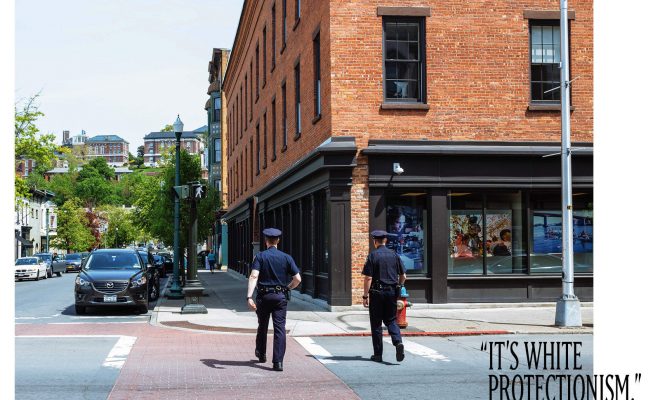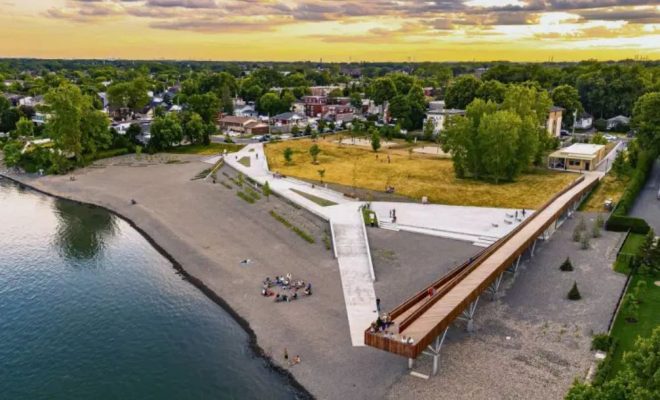Immigrants Left High and Dry on The Rock – LeCanadian

Lack of support forces newcomers out of Newfoundland
ST. JOHN’S, NEWFOUNDLAND—When refugee claimants arrive in St. John’s, Newfoundland, Jose Rivera, executive director of the Refugee and Immigration Advisory Council (RIAC), tells them to go to another province. “Don’t go to the airport,” he says, “just grab a bus and go to Halifax or anywhere else you can reach.”
The reason is simple. There is no one in Newfoundland to help claimants through the different levels of bureaucracy. A 2009 study funded by the Harris Centre at Memorial University reveals a troubling lack of information being shared with newcomers. In a survey of 47 immigrants and international students, only 36.2% had received information on how to contact immigration agencies.
“Services are there,” says Rivera, “but you have to get there knowing what you don’t know, so you can ask the question you don’t know how to ask.” He speaks from experience: when he came to Newfoundland with his family as a Colombian refugee in 2002, he was unable to find steady work despite his business background. His organization is a non-profit NGO that assists new Canadians with services such as English language classes, sponsorship contacts, deportation intervention and sanctuary support.
The 2009 study found that less than half of those surveyed had received information on how to access medical services and how to find housing. Only 19% had received information on how to get prior education or credentials assessed and obtain Canadian equivalents for international qualifications.
Legal services for newcomers are also paltry. Only two legal aid staff lawyers in Newfoundland handle approximately 60 to 70 immigration and refugee law cases a year and they do not even work exclusively in immigration and refugee law, running a mixed practice that also includes criminal, family and poverty law.
The single available immigration lawyer in Newfoundland, Meghan Felt with McInnes Cooper, rarely works with refugees, instead mostly working on business immigration and helping residents sponsor family members and spouses.
“The biggest problem is that when people come here, they just don’t know where to go,” says Felt.
The claim process for new refugees can also drag on for several years. “You submit your application, and that gets sent to either Ottawa or the Canadian embassy of your home country, but then there’s no one to talk to you,” explains Felt. “They end up not filling in the right documentation and they get rejected or they have to appeal, and the whole process can drag on for up to five years.”
Legal aid does not even have translators or interpreters on staff for immigration or refugee law work. Instead, staff lawyers hire private translators or interpreters, meaning they must often rely on telephone conversations with translators and interpreters in Ontario.
Newfoundland consistently ranks as the worst province for refugee and immigration retention. A 2005 study prepared for the Atlantic Canada Opportunities Agency and the Coordinating Committee on Newcomer Integration showed that between 1991 and 2001, only 36% of Newfoundland’s immigrants stayed in the province, well below the national retention average of 82%.
Contrasting the lack of support for newcomers in Newfoundland is the major labour shortage facing the province over the next decade. A 2011 provincial government report from the Department of Human Resources, Labour and Employment estimated there will be 70,000 new job openings by 2020.
The problem is such that the local business community in the province is also speaking out, including the St. John’s Board of Trade, which has advocated for increasing immigration.
“We need a population growth strategy,” says CEO Nancy Healey.
“Newfoundland isn’t being pro-active like other provinces,” she explains. “We need to bring in people to help with demographic challenges and the labour market.”
When asked to comment on the situation, the Newfoundland Office of Immigration and Multiculturalism did not return our repeated calls.
Rivera’s initial struggles as a refugee prompted him to take the lead of RIAC and support other immigrants, but he is one of the few that elect to stay in the province.
“Government is almost impenetrable,” he bemoans.
RIAC strives to improve diversity in Newfoundland by hosting various events aimed at educating the local community on how newcomers can participate in Newfoundland’s economy and culture. After all, with a declining birthrate and steady emigration, Newfoundland needs new Newfoundlanders. As a former refugee-claimant and now proudly integrated Newfoundlander, Rivera knows this more than anyone.
Brad Dunne (@BradDunne1796) is a freelance writer currently located in St. John’s, Newfoundland.








